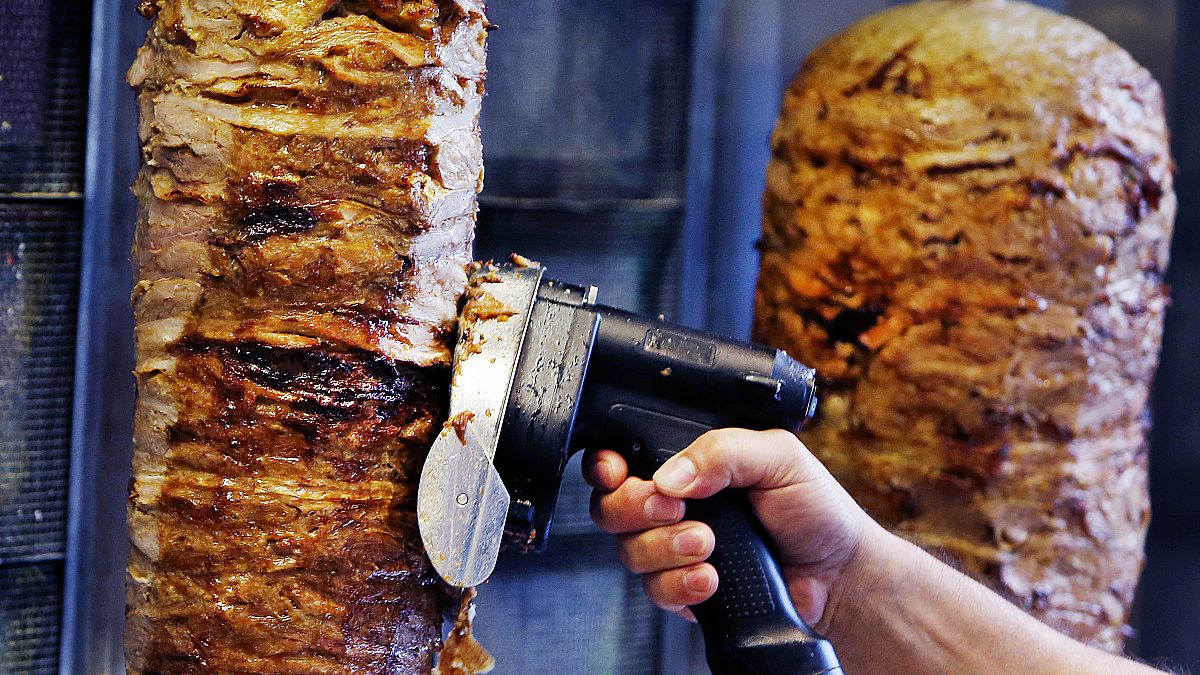Türkiye has filed an application to grant its best-known foodstuff the same EU protection as Neapolitan pizza and Spanish jamon serrano.
Germany's most eaten street food the Turkish döner kebab is now seeking protection within the EU’s special protection label alongside other European favourites such as Neapolitan pizza and Spanish jamon serrano.
The term döner comes from the verb ‘dönmek’ (‘turning’ in English) but most Europeans know it simply as döner kebab – with the addition of the name used in the Arabic word for all kinds of meat cooked in front of a fire.
Türkiye wants to register the name döner in Europe so that it can be used only by those producers conforming to the registered production method and product specifications.
If its application is successful, only large slabs of beef and lamb “horizontally sliced into cutlets with a thickness of 3-5 mm” could be labelled as yaprak (or sliced) döner, while chicken cutlets can be 1-2 cm thick in the poultry variety.
The döner economy in Europe is estimated to be worth roughly €3.5bn, the text of the submission reads, supported by the Association of Turkish Döner Producers in Europe (ATDID), representing the sector in Europe since 1996.
Although they are occasionally associated with the EU's protected designation of origin (PDO) quality scheme, traditional specialities are not included in the geographical indications (GIs) framework - which provides the greatest level of intellectual protection for foodstuffs in Europe.
This stronger protection is granted to foodstuff with a link to a geographical area which is not the case for the traditional cooking technique of döner – and it is also the reason why Parma ham has been granted a GI while jamon serrano enjoys protected status alone.
The food speciality label has caused controversy, however, such as when the use of the traditional term ‘prošek’ for a sweet dessert wine produced in Croatia was challenged by Italians as it could conflict with the PDO of Italian Prosecco.
In the case of döner, complaints might be expected from a close neighbour and long-time cultural rival across the Aegean.
“It is claimed that Greece was the first country in Europe where ‘Döner’ was introduced during an exchange of people between Turkey and Greece in 1922. In Greece, it has been named ‘gyro’," says the application by Türkiye, in anticipation.
A consultation phase is now open and will last for three months, in which countries can challenge the registration by raising intellectual property issues.
